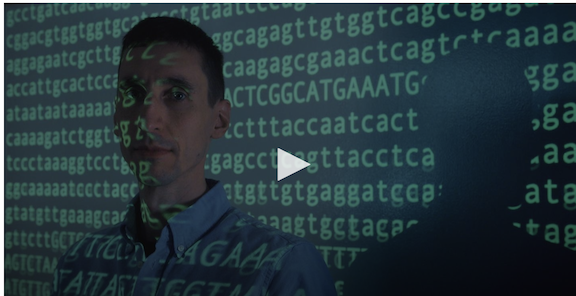Our recent work on understanding the legacy of interbreeding between Neanderthals and humans is featured in a new PBS/BBC documentary called Neanderthal. The crew spent a day on campus and toured the lab, the BioVU biobank, and the ACCRE computer cluster. We are very grateful for this opportunity to share our work with a broad audience. The two-part series airs on PBS on Wednesday October 17 and 24. The main segment on our work is in the second part. For a taste, check out this clip:

https://www.pbs.org/video/our-neanderthal-legacy-fzy4zy/
Monthly Archives: October 2018
Ling and Alex’s paper published in PLOS Comp Bio!
Congratulations to Ling and Alex on their paper being published in PLOS Computational Biology. They developed a machine learning approach to model the DNA sequence properties of gene regulatory enhancers and then quantify the conservation of enhancers’ sequence properties across diverse mammalian species. They demonstrate deep conservation of enhancer sequence properties despite the rapid turnover of the specific genomic regions that have enhancer activity. This work has broad relevance to our understanding of enhancer sequence architecture and the prediction of the effects of non-coding mutations on function within and between species. Check it out:
Prediction of gene regulatory enhancers across species reveals evolutionarily conserved sequence properties
Welcome Evonne!
We are very pleased to welcome new graduate student Evonne McArthur to the lab. Evonne is a MD/PhD student joining the Human Genetics program. She is interested in the role of structural and regulatory element variation in risk for both rare and common diseases. She graduated from the University of North Carolina at Chapel Hill with a B.S. in Quantitative Biology.
Undiagnosed Diseases Network Award Funded!
The Vanderbilt Undiagnosed Diseases Network (UDN) site has been renewed by the NIH for four more years. The UDN’s purpose is to bring together clinical and research experts from across the United States to solve the most challenging medical mysteries using advanced technologies. We look forward to continuing to collaborate with our UDN colleagues to interpret genetic variants identified in patients.